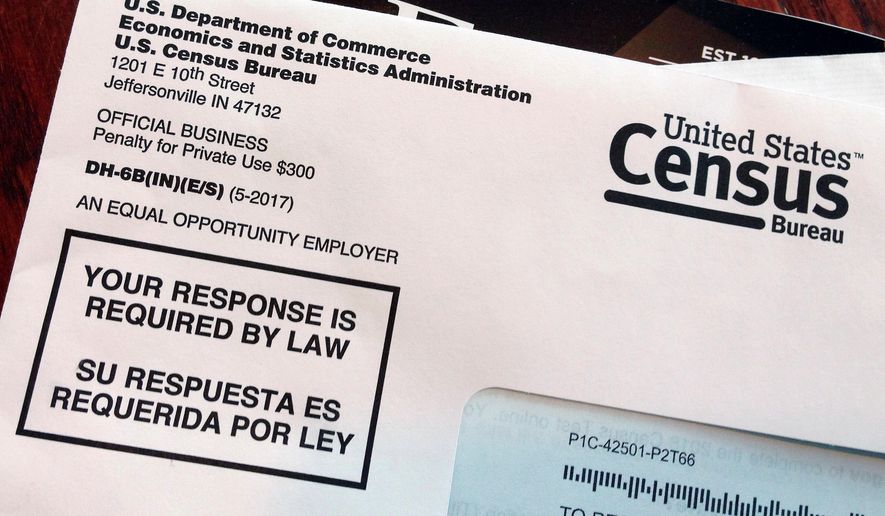OPINION:
ANALYSIS/OPINION:
This burning question was put to the Supreme Court: Will the 2020 census ask whether a respondent is a U.S. citizen?
The answer to that simple question can help distinguish who lives in the United States vs. who is a citizen of the United States.
The difference is important for different reasons, some of which are purely political, some solely economic and some of both. And regardless where you fall on the political spectrum — and whether you are a citizen or a resident — the question must be asked, and answered truthfully.
There’s a fear factor, though. There’s a fear that asking about citizenship might create an “undercount.”
What an undercount might undermine is how political rhetoric — not necessarily facts — underscore federal, state and local spending policies and programs.
Now, let’s be real. You can claim residency in a state or a city but live in another, as members of Congress do. You also can claim residency in a city or county to put your child in a school nearer your place of employment. You also can claim residency in a city to get tax breaks for employment or real estate.
Seeking someone’s citizenship status doesn’t, by itself, determine whether someone is a resident of a state.
Consider, too, that mainland U.S. cities and states open wide their arms when wicked hurricanes strike such U.S. territories as Puerto Rico and Guam. Are they U.S. citizens? (The answer is yes.)
And when it comes to political expediency, suffice it to say that sanctuary cities don’t want to distinguish between citizens and residents. No underdogs, no shakedown rhetoric.
In case you do not know or forgot, the Constitution mandates a census, so it’s one of those cans Congress cannot kick down the road until, say, after the 2020 elections, because they don’t like the current president. Even House Wonder Woman Nancy Pelosi lacks the power to out box the Constitution.
Plus, Americans have said bring on the burning question.
In a recent survey by Hill-HarrisX, 6 in 10 registered voters said ask the question even if it results in fewer responses; 65% of whites, 53% of blacks and 53% of Hispanics favored the question.
Also, 81% of Republicans, 54% of independents and 49% of Democrats backed asking the citizenship question.
Or look at it this way: 67% of men and 54% of women said pose the question.
Now, fortunately, the Supreme Court doesn’t use polls as a weather vane to determine which way the winds of justice should blow on any given issue. That’s what politicians do — election year or not.
If politicians on Capitol Hill want to change to Constitution, then they should ask the people. In fact, they must seek the people’s permission.
However, the Supreme Court needs no such nod to permit such a simple census question that seeks such a simple yes-or-no response.
• Deborah Simmons can be contacted at dsimmons@washingtontimes.com.




Please read our comment policy before commenting.